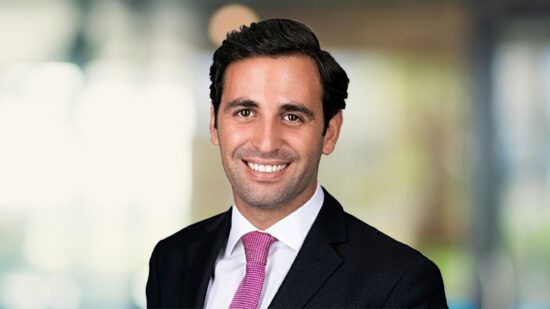Incumbent prime minister Mario Monti trailed in the opinion polls and our interviewees – most of whom are fund selectors at wealth management firms and private banks – complained that the country was ruled by the same, long-established elite. Politicians were failing to make the tough choices needed to secure Italy’s long-term economic success, they said.
Domestic economy
Investors remain upbeat on growth
Their views contrasted starkly with those expressed by Milanese investors in early 2012, when the instalment of Monti’s technocratic administration had encouraged Italians to believe they at last had a government which was both willing and able to implement meaningful political and economic reforms.
In addition, the European Central Bank’s longer-term refinancing operation had pushed the yields on ten-year domestic government bonds below 5%, from 7% in January 2012. Yet while hopes for political change have soured, many of this year’s interviewees said they remained confident that the domestic economic picture was improving – albeit slowly.
European stocks





Fund selectors plan to up their weightings
Italian-domiciled global equity funds suffered outflows throughout 2012 (see graph 1). However, many of our interviewees benefited from their domestic stock exposure during the final three months of last year and were planning to take profits, following a bounce of about 10% in the FTSE MIB Index in Q4.
Looking ahead, investors expressed concerns on what they perceived as a lack of transparency and efficiency in the Italian stock market. But they were upbeat on European equities more broadly – an echo of the bullish stance of Expert Investor Italy delegates in 2012 (see graph 2).
Most said they planned to increase their European stock allocations from underweight to neutral over the coming months.
The US
Economic outperformance expected in H2
Views on US equity were also similar to last year, when it was the most popular mainstream asset class (see graph 3). Interviewees were upbeat on the US economy and expected it to outperform Europe in the second half of 2013. However, they were unsure of the best way to access this market, noting that few active US equity fund managers have consistently beaten the S&P 500 Index.
Emerging market equities
Interviewees want more from EM funds
Appetite for developing world stock exposure has risen since 2012, when Expert Investor Italy delegates were neutral on this asset class in aggregate (see graph 4). Fund selectors this year were universally bullish on the region and seeking options beyond traditional global EM strategies. Some wanted direct exposure to China – via local Chinese companies, rather than multinationals – while others spied opportunities in the surrounding nations of Cambodia, South Korea and Vietnam.
There was also appetite for Latin America, although some investors queried whether Brazil – which accounts for more than half the region’s total stock market capitalisation – should be regarded as an emerging market.
All of our interviewees were interested in hearing more from specialist, boutique-style emerging market fund management companies, but said there was a general lack of choice in this area.
Western fixed income
High yield popular despite valuation worries
Last year was a mixed period for Italian-domiciled fixed income funds, but such products still attracted overall net inflows of more than €750m (see graph 5). Interviewees say they have reduced their exposure to low-yielding Western government debt, especially German bunds – in line with investor expectations last year, as shown by our 2012 Expert Investor Italy voting data (see graph 6).
As in other European countries, Western fixed income investors remain firmly focused on corporate securities. There was some demand among interviewees for developed world investment grade, but appetite has waned since March 2012, when more than two-fifths of fund selectors planned to bolster their allocations over the following 12 months (see graph 7).
Fund selectors were generally more enthused by opportunities in US and European high yield, despite concerns that the sector may have become expensive.
Developing world bonds
EM corporate debt is in demand
Many interviewees were upbeat on emerging market government bonds (the most popular fixed income sub-class in 2012 – see graph 8) and accessed this asset class via a blend of hard and local currency strategies.
They were also keen to gain greater exposure to developing world corporate debt – a sector which is now estimated to rival the US high yield market, in terms of overall size.
Alternatives
Convertibles grow in popularity
Looking at less traditional asset classes, there was considerable appetite among our interviewees for convertible bonds. Fund selectors were also upbeat on Ucits absolute return, although at least one noted that it was difficult to find strategies which were truly uncorrelated with equity markets.
Ilyes Bdioui and Will Jackson, members of EIE’s research team, collected the information in this document through a series of interviews with senior fund selectors and asset allocators, plus publicly sourced data. For more information, contact Ilyes at ilyes.bdioui@lastwordmedia.com or on +44 (0)20 7382 4470. Click here to see upcoming Expert Investor Europe events in Italy.







